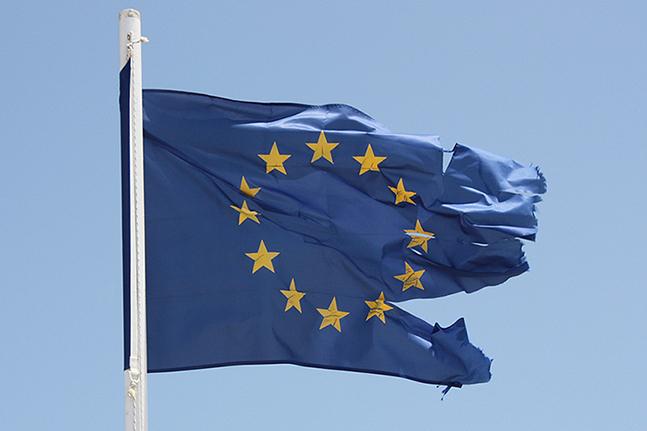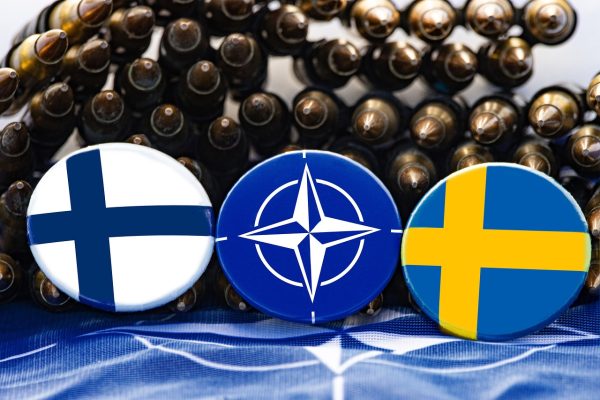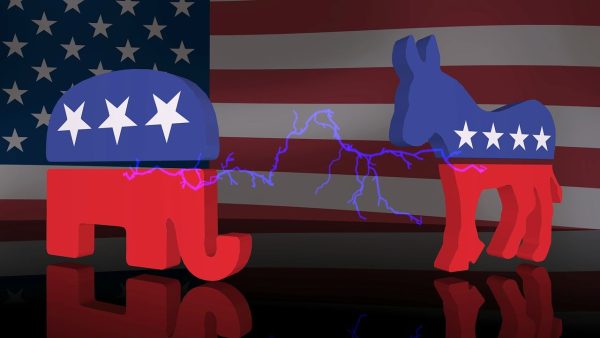Extreme Europe
The movement spurned by Trump appears unique. There seems to only be a call to arms for the far-right racists, homophobes ,and xenophobes in the United States. The reality is, Europe, often seen as a bastion of progressive and liberal thought, appears to have some of the same movements, as it did nearly one hundred years ago.
In Europe, far-right, often called fascist movements, are rising in membership. In France, the National Front (or FN in French), known for its anti-Islamic and anti-Semitic tilt, is displayed as a solution to the progressive government that has allowed people like the Paris attackers to come into France unopposed. In Germany, PEGIDA, or Patriotic Europeans Against the Islamisation of the West, have unified people of progressive ideology and neo-Nazis, into a force that wishes to force heavy restrictions against the flow of migrants into Germany. In Poland, the National Movement, or RN, has united football hooligans, ultra-nationalists, and the far-right, in a movement to remove social security, boost the Polish military, but also gain energy independence as well as lowering taxes on small businesses.
There is a common theme amoungst groups like these; they attempt to strike a balance between progressive movements and far-right conservative movements. It’s easy to be led into a party like PEGIDA, because it preaches that it can fix the migrant crisis as soon as the party gets into office, or into a party like the FN, as it calls for action against legislation that allowed the Paris attackers to enter France. They seem familiar. Enter, the Nazi party.
The Nazi party of the 1930’s and the 1940’s gained popularity due to a number of factors. The disaster of post-war policy from World War One which left Germany in debt and weak, was a strain on the everyday people of Germany. Communists had come, but remained a distinct minority among other minorities like the Jews and the Gypsies. The democratic government seemed inactive in fixing the problems that struck at the pockets and hearts of the everyday people of Germany; from bankers, to factory workers, to shop owners and factory owners, even the millionaires of Germany felt the pain of the time after World War One. Then, came a man named Adolf Hitler. A veteran of World War One, and a man in prison. He would go on to write Mein Kampf, or My Struggle, while in prison, where he described his struggles with the post World War One Germany. The book related to the everyday people of Germany, and when Hitler was ambitious enough to go into politics, he ran with the pre-existing German Workers’ Party.
The Nazi party, or the National Socialist German Workers’ Party, was formed when Hitler believed the Workers’ Party should be expanded. The expansion would bring more membership, as those on the left would flock to a party that allowed socialists and nationalists into a party that represented their passion for German military excellence over all other nations. With this new Nazi party, the people of Germany would unify behind a party that planned to fix the problems of the Great Depression in the 1930’s that hit Germany even harder than before. An arm of the Nazi party would later burn down the Reichstag, and blame it on the communists. The communists would be hunted and killed by fanatical Nazi party members. The Jews and the Gypsies were blamed for the problems that brought down the German economy, even though the opposite was true. Many Jews and Gypsies were suffering just the same as the everyday Germans were. But this logic was quickly stamped out, and was soon replaced with the idea of conquering the world with an Aryan master race.
What happened with the Nazi party is now history, with World War Two and the Nuremberg Trials. It is hard to not see the connections that can be made with the past. In France, the Paris attack unifies France under a banner of national defense, similar to that of the Reichstag fire and how it unified Germany under a pursuit of national defense from socialists, as well as communists. In Germany, the same place where Nazism started, a fear of Muslims and immigrants (as well as migrants) has fueled a new movement of racism similar to that done against the Jews and Gypsies in Germany during the Nazi party’s majority rule. In Poland, a harsh economic depression has annihilated small and big business alike; almost identical to the Great Depression and economic crisis that struck Germany from the 1920’s to the 1930’s.
It is times of crisis, strife, and disillusionment, where people flock to big, king-like leaders to aid them. We must be cautious, since leaders like Adolf Hitler, Benito Mussolini, Joseph Stalin, Pol Pot, and for those more historically inclined, Julius Caesar, came to power “democratically.” We have to be careful to keep away dictators that wish take the rights of citizens away. Crisis often isn’t easy to deal with, but quick and easy solutions often lead to a greater mess than were present before. Every democratic nation in the world has a duty to remain democratic, and to keep away those that wish to harm human rights in favor of temporary satisfaction. We are not alone.
As a note, other nations have far right movements, like Britain, Italy, Macedonia, and Belgium, just to name a few.












